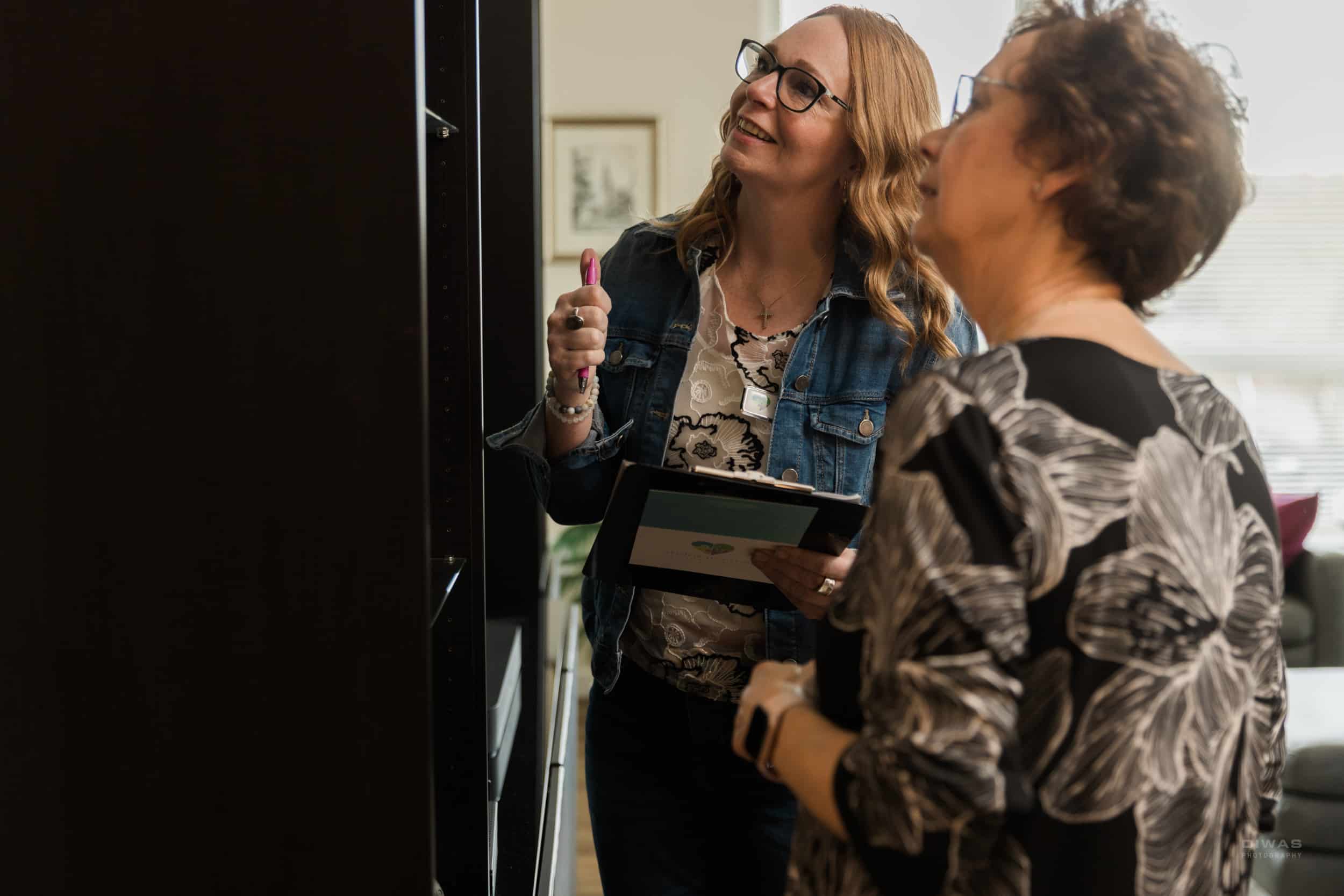
The emotional attachments we have to our “old selves” often keep us rooted in place—sometimes longer than is safe or healthy.
In my conversations with families, I hear it again and again: “My loved one won’t move because they can’t bring all their things.” Often, that’s true. But just as often, families struggle to communicate what moving into the future really looks like. How do you bring it up? How do you decide what stays and what goes? What’s critical to me might not seem critical to you—and that’s completely normal. It’s a deeply personal process, and sometimes words just don’t do it justice. This can leave everyone feeling anxious and overwhelmed, wondering, “What in the world are we going to do?”
Every individual’s experience is unique. Many are thinking of the years spent gathering in a certain place, doing specific things—like playing on the old backyard swing set. How long do we keep something with rotted wood and rusted chains? For the great-grandkids? Or keeping the house because of the tradition of gathering around the same dining table, now with the third or even fourth generation? There’s a powerful pull to keep traditions alive exactly as they’ve always been—the same objects, the same decorations, the same utensils used for decades. It’s so personal.
And yes, sometimes people are unwilling to part with their best china, even though it’s never been used. Or a chair that great-grandpa built by hand. These items hold true connections and deep nostalgic meaning. The memories attached to them—especially those tied to loved ones who are no longer here—are real and emotional. It’s personal.
I’ll share an example. I have an enormous ficus plant in my dining room. It’s not particularly beautiful, but it means the world to me. It was my grandparents’ houseplant, and I remember it vividly in their entryway from the time I was a small girl. It’s the only living thing that came from their home when they moved.
What happens when I need to downsize? That plant takes up a big chunk of a room. If no one wants it, I honestly don’t know how I’ll feel. I’ve thought about it many times, and I know it would hurt to let it go. Its long branches, each bearing a single leaf, its roots creeping above the soil—it’s been part of my life for so long. My grandpa passed over 20 years ago, and that plant used to sit right by his side.
Even though I don’t have to make that decision yet, I know my health will always come first. If the time comes, I’d want to find an organization that would see the beauty of a plant that’s lived over 40 years. Maybe I’d donate it to a Catholic church—it would make my grandma happy. Ideally, one of my kids would keep it, honoring the memories tied to it. After all, we’ve had it since they were toddlers.
It’s easy to get wrapped up in emotional connections to the things that hold space in our memories. It’s so personal.
The baby steps toward change can feel daunting. It’s hard to keep pushing your loved one, constantly asking, “Did you go through that room yet?” But I like to remind people: use quiet, rainy days to be productive—because if a crisis comes, you’ll be glad you prepared. Having the ability to control the outcome of what happens to special items feels much better than having no choice. None of us want to think about the day we can’t make these decisions ourselves. But just in case, especially when health concerns are at play, it’s best to stay ahead of it.
Hand over those favorite blankets now and have someone make a quilt. Or if your loved one can’t move around much anymore, that could be a meaningful gift. Deeply personal—a mix of all their favorite things. Keep one item from each figurine collection and create a shadow box.
And here’s something to be mindful of: if you’re a caregiver, be careful not to bring home items you’re emotionally tied to for them and accidentally make their burden your own. 😊 We don’t want to put our loved ones in a tough spot someday when they have to sort through our things. Just food for thought!
Whatever your challenge, now is the time to open up conversations, plan ahead, and take thoughtful steps. We all have things we struggle to let go of. Begin preparing now for that next stage of organization and consolidation. If the process feels too overwhelming—whether due to distance, mobility, or time—consider hiring a service. There are fantastic senior-focused moving companies out there. I’m happy to recommend a few if you need help. I always love to be a resource!




